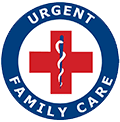A fever is a temporary increase in body temperature. Having a fever is often a sign that your body is fighting an illness or infection.
The average normal body temperature is 98.6 F (37 C), but may be slightly lower or higher for some people. Normal body temperature can vary by a degree or more during different times of the day. Your temperature is usually lower in the morning and higher in the late afternoon or evening, and may increase when you exercise or experience strong emotions.
A fever is a natural and important part of the body’s defense against infection. A fever activates the body’s immune system, and fights bacteria and viruses that thrive at normal body temperatures. It is not always appropriate to treat a fever. Most fevers go away in a few days when the infection or illness clears up.
Causes of Fever
Fever or elevated body temperature could have a number of causes, including:
- A virus
- A bacterial infection
- Heat exhaustion or extreme sunburn
- Certain inflammatory conditions such as rheumatoid arthritis
- A malignant tumor
- Some medications, such as antibiotics and drugs used to treat high blood pressure or seizures
- Some shots, such as the diphtheria, tetanus and acellular pertussis (DTaP) or pneumococcal vaccine
Symptoms of Fever
Depending on the cause of your fever, you might have additional symptoms such as:
- Sweating
- Shivering and chills
- Headache
- Muscle aches
- Loss of appetite
- Dehydration
- General weakness
High fevers between 103 F (39.4 C) and 106 F (41.1 C) may cause:
- Hallucinations
- Confusion
- Irritability
- Convulsions or seizures in small children
- Dehydration
Treatment for Fever
If the fever is mild and there are no other serious symptoms, no medical treatment is required. Drink fluids and rest.
Adults with Fever
For adults, a fever may be uncomfortable, but usually is not a cause for concern unless it is higher than 103 F (39.4 C) or lasts for more than 3 days.
Child with Fever
Children often have fevers with viruses, colds, or infections they picked up at school or day care. A child with fever who is responsive, making eye contact, playing, and drinking fluids, probably does not need any treatment. If your child seems listless, or has a stiff neck, vomiting, or other symptoms that worry you, see a doctor.
Baby with Fever
New babies have not yet developed immunity to many infections, so even a low fever should be taken seriously. See a doctor if your baby is:
- Less than 90 days old and has a rectal temperature of 100.2°F (37.9°C) or higher.
- 3 to 6 months old and has a fever of 101°F (38.3°C) or higher.
- 6 to 12 months old and has a fever of 103°F (39.4°C) or higher.
- Younger than 2 years old and has a fever that lasts longer than 24 to 48 hours.
Seizure Due to a Fever
A small number of children between 6 months and 5 years old have fever-induced seizures, during which the child loses consciousness and their arms and legs shake. If your child has a seizure:
- Lay the child on his or her side or stomach on the floor or ground, away from any sharp objects.
- Loosen tight clothing.
- Hold your child to prevent injury.
- Do not place anything in the child’s mouth or try to stop the seizure.
Most seizures stop on their own. Call for emergency medical assistance if a seizure lasts longer than 10 minutes.
Take your child to the doctor as after the seizure to determine the cause of the fever. Most febrile seizures cause no lasting effects.
Anyone with a fever should see a doctor if:
- The fever lasts longer than 48 to 72 hours.
- The fever is over 105°F (40.5°C), unless it comes down quickly with treatment and the person is comfortable afterwards.
- The fever is accompanied by irritability, confusion, difficulty breathing, stiff neck, inability to move an arm or leg, or a first-time seizure.
- Other symptoms such as an earache, cough, or an infected wound suggest an illness that might need treatment.
- You think you might have taken too much acetaminophen or ibuprofen.
Evaluation and treatment for a fever is available without appointment at Urgent Family Care in Knoxville,Tennessee.
Bringing Down a Fever
To lower a fever:
- Put the person in a cool, comfortable environment. DO NOT bundle up a person who has the chills.
- Try a lukewarm bath or sponge bath. DO NOT use a cold bath or alcohol rub because the shivering it causes actually raises body temperature.
- Drink cool liquids if possible.
- Try a cold compress on the back of the neck to relieve headache caused by fever.
Acetaminophen and ibuprofen help reduce fever in children and adults. Read the labels carefully and follow the instructions. Ibuprofen (Motrin or Advil) is not approved for children less than 6 months of age. Do not give any medicine to a child under 3 months old, or to a child who is dehydrated from vomiting or diarrhea.
If you have worries or concerns about a fever, or about a child with a fever, do not hesitate to come to Family Urgent Care in Knoxville, TN. Our expert staff will evaluate the situation and provide appropriate treatment.
